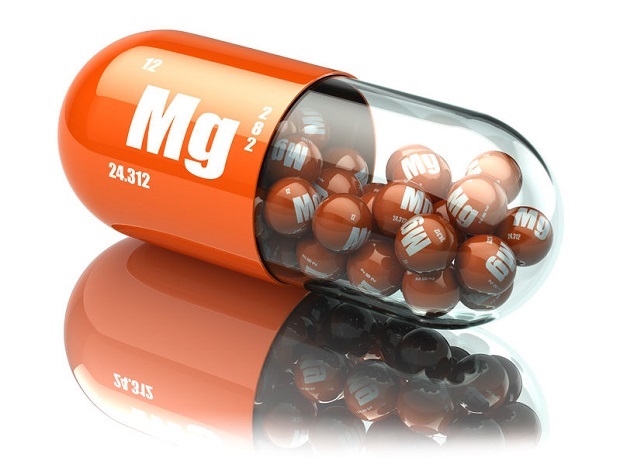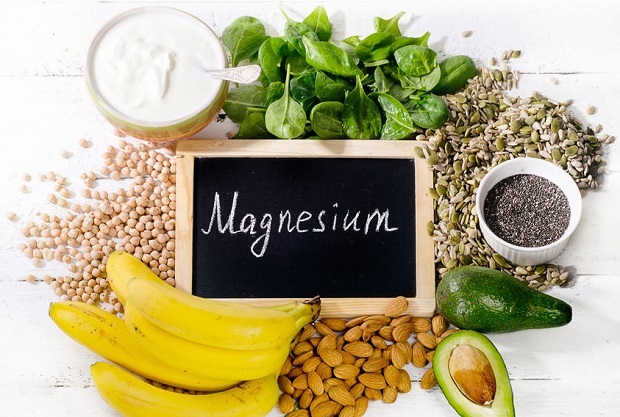
Does Magnesium Help You Sleep?
Magnesium is not a sleep aid, nor does it promote drowsiness. Still, if your body lacks adequate magnesium levels, increased magnesium intake may resolve your sleepless nights.
Jump Ahead
- Sleepless Nights? Magnesium Deficiency May Be to Blame
- Magnesium Supplements as a Sleep Aid
- Eat More Spinach – Sleep Better at Night
- Milk as a Sleep Aid?
- Glossary of Terms
- Expert Opinion
- Resources
Sleepless Nights? Magnesium Deficiency May Be to Blame

Various factors, including a magnesium deficiency, cause sleep disturbances and insomnia. Research has indicated that magnesium plays an important role in the sleep process. Those with a deficiency demonstrate a significant increase in wakefulness, light and disorganized sleep, and have a harder time falling asleep with lower sleep quality. In several studies, sleep patterns returned to normal when magnesium levels were balanced. [1][2]
Magnesium Supplements as a Sleep Aid

Though increasing your magnesium intake may resolve your sleep problems, taking supplements is probably not a good idea unless specifically recommended by your physician.
The caveat to using pharmacological magnesium in supplements or other forms is that it carries the risk of side effects if taken in excess. Side effects can include upset stomach, nausea, vomiting, and diarrhea. More serious side effects of extreme doses can include low blood pressure, irregular heartbeat, slowed breathing, confusion, and even coma and death. [3]
Magnesium supplements can also interact with other medications, such as aminoglycoside antibiotics, quinolone antibiotics, tetracycline antibiotics, bisphosphonates, medicines for high blood pressure, muscle relaxants, and water pills. [4]
Eat More Spinach – Sleep Better at Night

If your sleep issues are connected to low magnesium levels, diet is the best way to resolve the deficiency. Because nearly 75% of Americans do not get enough magnesium in their diets, a logical, healthy first line of defense against those sleepless nights might be to increase your dietary magnesium intake. [5] You can easily increase your dietary levels of magnesium by eating a varied diet that includes plenty of legumes, nuts, whole grains, and vegetables. A few foods high in magnesium are wheat bran, almonds, spinach, raisin bran, and cashews. [6]
And unlike pharmacological magnesium, the great thing about eating more magnesium-rich foods is that there are no side effects.
Milk as a Sleep Aid?

As science has evolved over the decades, many folk remedies passed down through the generations have been proven ineffective. The traditional notion that warm milk before bedtime will help promote sleep may be valid. Milk contains 37 mg of magnesium but also packs tryptophan, which the body uses to produce serotonin, a chemical in the body believed to be associated with sleep. [7][8]
Glossary of Terms

Pharmacological: The science of drugs, including their composition, uses, and effects.
Thefreedictionary.com
Serotonin: acts as a neurotransmitter, a chemical that helps relay signals from one brain area to another.
WebMD
Tryptophan: The body uses tryptophan to help make niacin and serotonin. Serotonin is thought to produce healthy sleep and a stable mood.
Medline Plus
Expert Opinion

“I find it very funny that more doctors aren’t clued in to the benefits of magnesium, because we use it all the time in conventional medicine. But we never stop to think about why or how important it is to our general health or why it helps our bodies function better.”
Dr. Mark Hyman Magnesium: Meet the Most Powerful Relaxation Mineral Available
Resources
- [1] Depoortere H, “Effects of Magnesium-deficient Diet on Sleep Organization in Rats.” Neuropsychobiology; 1993; Volume: 27; No: 4; Pages: 237-245
- [2] Hornyak M, “Magnesium Treatment of Primary Alcohol-Dependent Patients During Subacute withdrawal: an Open Pilot Study with Polysomnography.” Alcoholism, Clinical and Experimental Research; 2004; Volume: 28; No: 11, Pages: 1702-1709
- [3][4] WebMD – “Magnesium Side Effects & Safety.”
- [5] MARY P. GUERRERA, “Therapeutic Uses of Magnesium.” American Family Physician; 2009; Volume: 80; No: 2; Pages: 157-162
- [6][7] Office of Dietary Supplements – National Institutes of Health – “Magnesium.”
- [8] NIH – National Library of Medicine – Medline Plus “Tryptophan.”
DISCLAIMER: THIS WEBSITE DOES NOT PROVIDE MEDICAL ADVICE
The information, including but not limited to text, graphics, images, and other material on this website, is for informational purposes only. No material on this site is intended to be a substitute for professional medical advice, diagnosis, or treatment. Always seek the advice of your physician or other qualified healthcare providers with any questions you may have regarding a medical condition or treatment before undertaking a new healthcare regimen, and never disregard professional medical advice or delay in seeking it because of something you have read on this or any other website.





